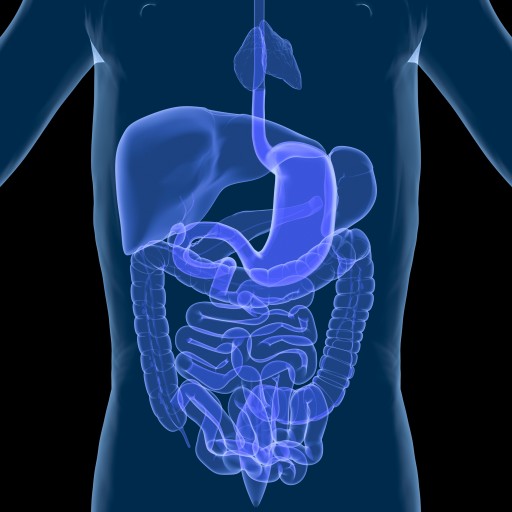Can taking probiotics improve your mental health?
July 6, 2011 by Amara D. Angelica

Gut (digestive system) (credit: stock image)
Professor Mark Lyte and associates at Texas Tech University Health Sciences Center have come up with a radical concept: that you may be able to fine-tune your mental and emotional states by the right combination of probiotics!
Probiotics are “good” bacteria that normally reside in your gut and are available OTC in any drug store or health food store. Lyte suggests that they can generate neurochemicals that affect your brain — even improve your psychological health, and that neurochemicals generated by the brain can also affect these bacteria.
We recently reported on evidence that gut microbes do in fact influence neurological function (along with aiding digestion and inhibiting pathogens). But Lyte and associates take it a step further.
“This paper proposes a new field of microbial endocrinology, where microbiology meets neuroscience,” Lyte said. “There is already evidence to suggest that the connection between gut microbes and the nervous system represents a viable route for influencing neurological function. A recent study in mice, for example, showed that the presence of neurochemicals such a serotonin in the bloodstream was due to direct uptake from the gut.”
“Neurochemicals such as GABA may be viewed as a common shared language enabling interkingdom signaling between prokaryotes (e.g., probiotic bacteria) and eukaryotes (e.g., vertebrates),” Lyte said in a BioEssays paper. For example, lactobacilli and bifidobacteria produce GABA, which is known to reduce stress and anxiety (GABA may also reduce inflammation in colitis and intestinal bowel disease), he said.
“GABA is already potentially present in some fermented foods,” Gregor Reid of the Department of Microbiology and Immunology, University of Western Ontario points out. “So should there not be some clinical evidence available already to suggest that eating these foods improves mental health?…. Lactobacillus acidophilus NCFM induce opioid effects, yet there is no evidence that pain relief is associated with ingestion of this organism in any probiotic formulation. This may be because nobody has investigated this formally, or the levels of the molecules necessary are too low.”
In the paper, Lyle lists several neurochemicals (normally produced by the brain) that are also produced by various probiotics in the gut:
| Lactobacillus, Bifidobacterium | GABA |
| Escherichia, Bacillus, Saccharomyces | Norepinephrine |
| Candida, Streptococcus, Escherichia, Enterococcus | Serotonin |
| Bacillus, Serratia | Dopamine |
| Lactobacillus | Acetylcholine |
If Lyte’s hypothesis is confirmed, microbial endocrinology may emerge as an exciting new approach to treating patients with psychological problems.
So do physical gastrointestinal problems have psychological counterparts? (Gives new meaning to “gut feeling.”) Also, what is the role of the “second brain” (neurons embedded in the walls of the long tube of our gut, or alimentary canal, contains some 100 million neurons) in this?
And will we see a new class of “psychohackers” experimenting with creating their own treatments and modifying their own neurochemicals to reduce depression and anxiety or induce happiness?
Ref.: M. Lyte, Probiotics function mechanistically as delivery vehicles for neuroactive compounds: Microbial Endocrinology in the design and use of probiotics, BioEssays, 2011; [DOI: 10.1002/bies.201100024]
Ref.: G. Reid, Neuroactive probiotics, BioEssays, 2011; [DOI: 10.1002/bies.201100074]
(GABA) is already potentially present in some fermented foods, should there not be some clinical evidence available already to suggest that eating these foods improves mental health?